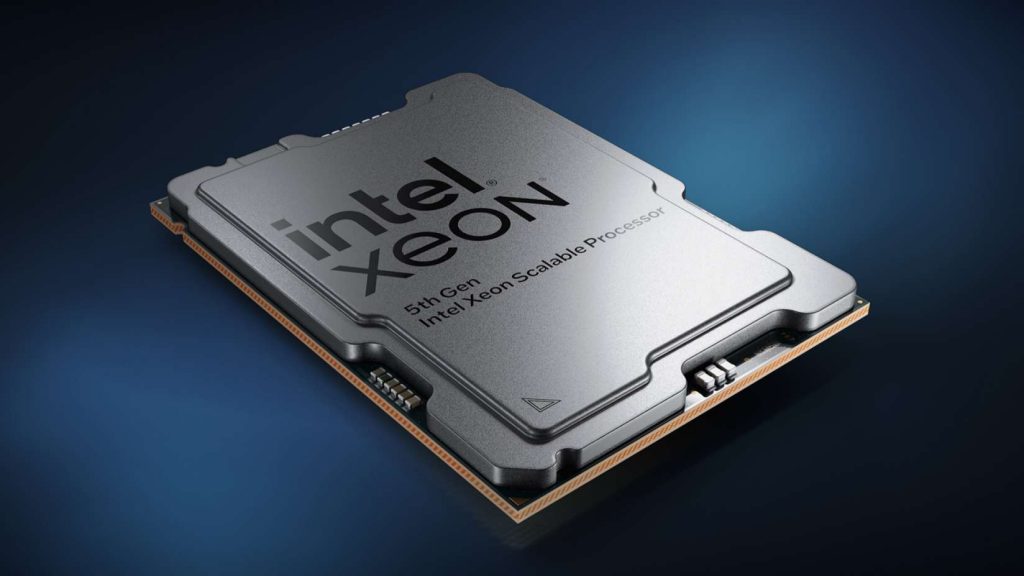13 April 2025, Sun |
8:45 AM

At its annual Intel Innovation event, Intel introduced a range of technologies aimed at democratizing artificial intelligence (AI) and making it accessible across all computing domains, from client and edge to network and cloud.
Intel CEO Pat Gelsinger emphasized the transformative power of AI, heralding it as a generational shift that would underpin a brighter future. Gelsinger highlighted the significant opportunities for developers to tackle global challenges and enhance the lives of individuals worldwide.

During his keynote address to developers, Gelsinger unveiled Intel’s strategy for infusing AI capabilities into their hardware products and providing accessibility through open, multi-architecture software solutions. He also discussed how AI is fueling the “Siliconomy,” a burgeoning economy rooted in silicon and software. Currently, the silicon industry is valued at $574 billion, contributing to a global tech economy nearing $8 trillion.
Advancements in Silicon, Packaging, and Multi-Chiplet Solutions
Intel’s journey to bolster AI begins with silicon innovation. Intel’s ambitious five-nodes-in-four-years development program is progressing smoothly, with Intel 7 in high-volume production, Intel 4 ready for manufacturing, and Intel 3 slated for completion by year-end.
Gelsinger showcased the Intel 20A wafer housing the inaugural test chips for the Arrow Lake processor, destined for the client computing market in 2024. Intel 20A boasts PowerVia, Intel’s innovative backside power delivery technology, and the novel gate-all-around transistor design known as RibbonFET. Intel 18A, which incorporates PowerVia and RibbonFET, remains on track for manufacturing readiness in the latter half of 2024.
Intel also revealed advancements in materials and packaging technologies, including groundbreaking glass substrates set to enable continued transistor scaling on a package. These innovations will cater to data-intensive, high-performance workloads like AI and extend the viability of Moore’s Law beyond 2030.
Furthermore, Intel showcased a test chip package utilizing Universal Chiplet Interconnect Express (UCIe), ushering in a new era of multi-chiplet packages and promoting integration through open standards. UCIe allows chiplets from various vendors to collaborate, facilitating diverse AI workload expansion and is supported by over 120 companies.
Boosting Performance and Expanding AI Accessibility
Gelsinger underscored the wealth of AI technologies available to developers across Intel platforms and the forthcoming expansion of this technology in the coming year.
Recent MLPerf AI inference results reaffirmed Intel’s commitment to addressing all facets of the AI spectrum, even the most demanding generative AI and large language models. Gelsinger announced the construction of a substantial AI supercomputer powered entirely by Intel Xeon processors and 4,000 Intel Gaudi2 AI hardware accelerators, with Stability AI as a flagship customer.
Zhou Jingren, CTO of Alibaba Cloud, lauded Intel’s 4th Gen Intel® Xeon® processors for significantly improving response times in Alibaba Cloud’s AI applications, achieving an average acceleration of 3x.
Intel also provided a glimpse of the next generation of Intel Xeon processors, with 5th Gen Intel® Xeon® processors offering enhanced performance and faster memory while maintaining power efficiency. Sierra Forest, with E-core efficiency, is set to launch in the first half of 2024 and will deliver notable improvements in rack density and performance per watt compared to its predecessor. Additionally, Granite Rapids, featuring P-core performance, will follow closely with 2x to 3x better AI performance.
Looking ahead to 2025, the next-gen E-core Xeon, codenamed Clearwater Forest, will debut on the Intel 18A process node.
Introducing AI into Personal Computing
Gelsinger highlighted the impending transformation of personal computing, proclaiming that AI would revolutionize the PC experience by synergizing the power of the cloud and PC. Intel’s Core Ultra processors, codenamed Meteor Lake, will usher in this new era, featuring Intel’s first integrated neural processing unit (NPU) for energy-efficient AI acceleration and local inference on PCs. Core Ultra will launch on December 14, 2023, and represents a pivotal moment in Intel’s client processor roadmap, enabled by Foveros packaging technology. Besides the NPU, the processor boasts significant power-efficient performance gains through Intel 4 process technology and discrete-level graphics performance with Intel® Arc™ graphics.
Intel showcased a variety of AI PC use cases, with Jerry Kao, COO of Acer, offering a sneak peek at an upcoming Acer laptop powered by Core Ultra. Acer has been collaborating with Intel to develop AI applications that leverage the Core Ultra platform.
Empowering Developers in the Age of AI
Gelsinger stressed the importance of making AI more accessible and transparent to the broader ecosystem. To this end, Intel announced several initiatives:
1. General availability of the Intel Developer Cloud: This platform enables developers to harness AI using the latest Intel hardware and software innovations, including Intel Gaudi2 processors. It offers access to hardware platforms like the 5th Gen Intel® Xeon® Scalable processors and Intel® Data Center GPU Max Series 1100 and 1550, facilitating AI application development, testing, and optimization.
2. Release of the 2023.1 version of the Intel Distribution of OpenVINO toolkit: OpenVINO, Intel’s AI inferencing and deployment runtime, includes pre-trained models optimized for various operating systems and cloud solutions. It supports generative AI models and has been utilized by companies like ai.io and Fit:match for applications ranging from athlete performance evaluation to retail and wellness.
3. Project Strata: Scheduled for launch in 2024, this edge-native software platform will provide modular building blocks, premium services, and support for developers. It will help scale infrastructure for the intelligent edge and hybrid AI, fostering collaboration between Intel and third-party applications.
This is just the beginning of Intel’s AI-driven innovations, with more to come as they continue to shape the future of AI and security.